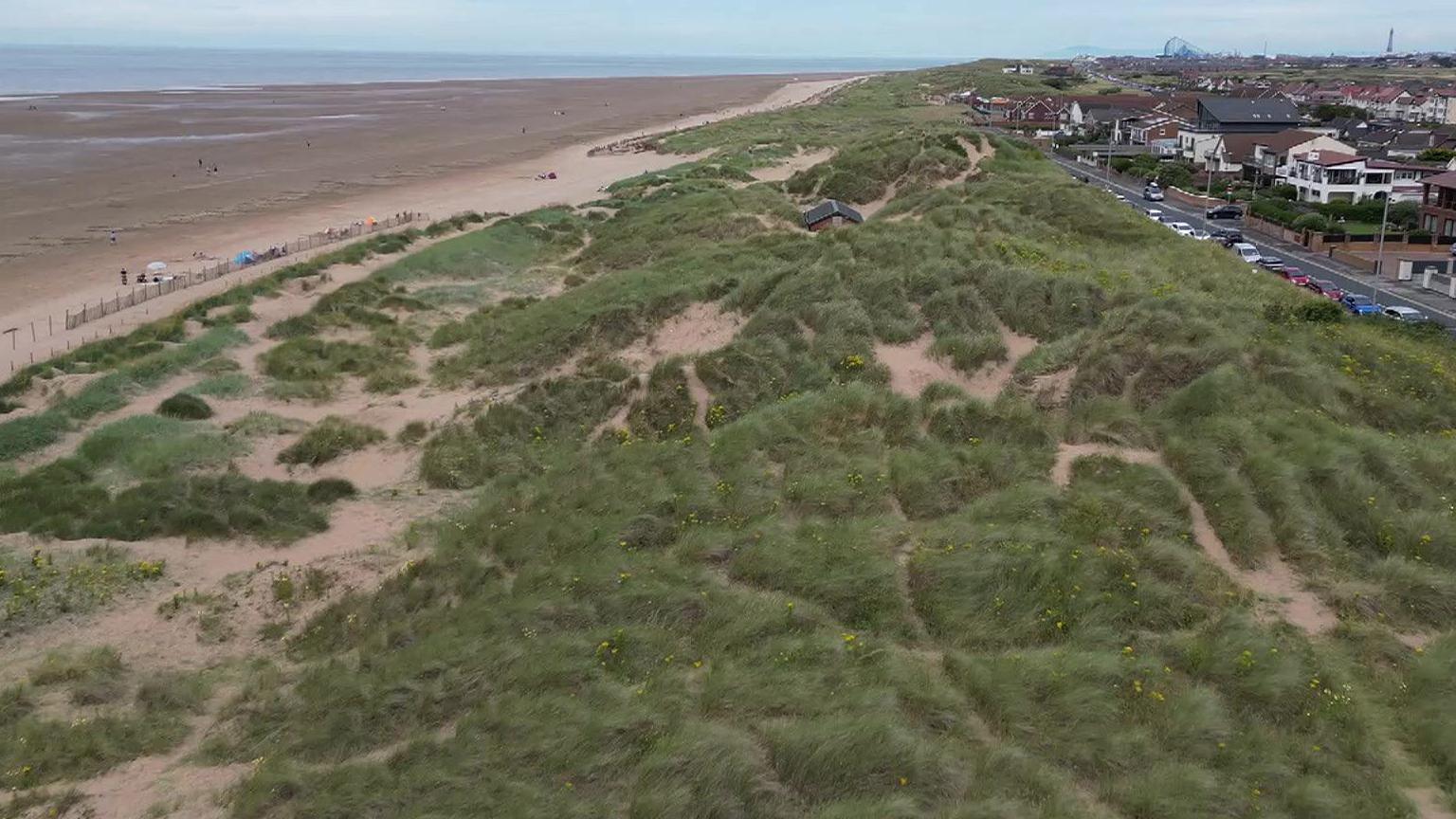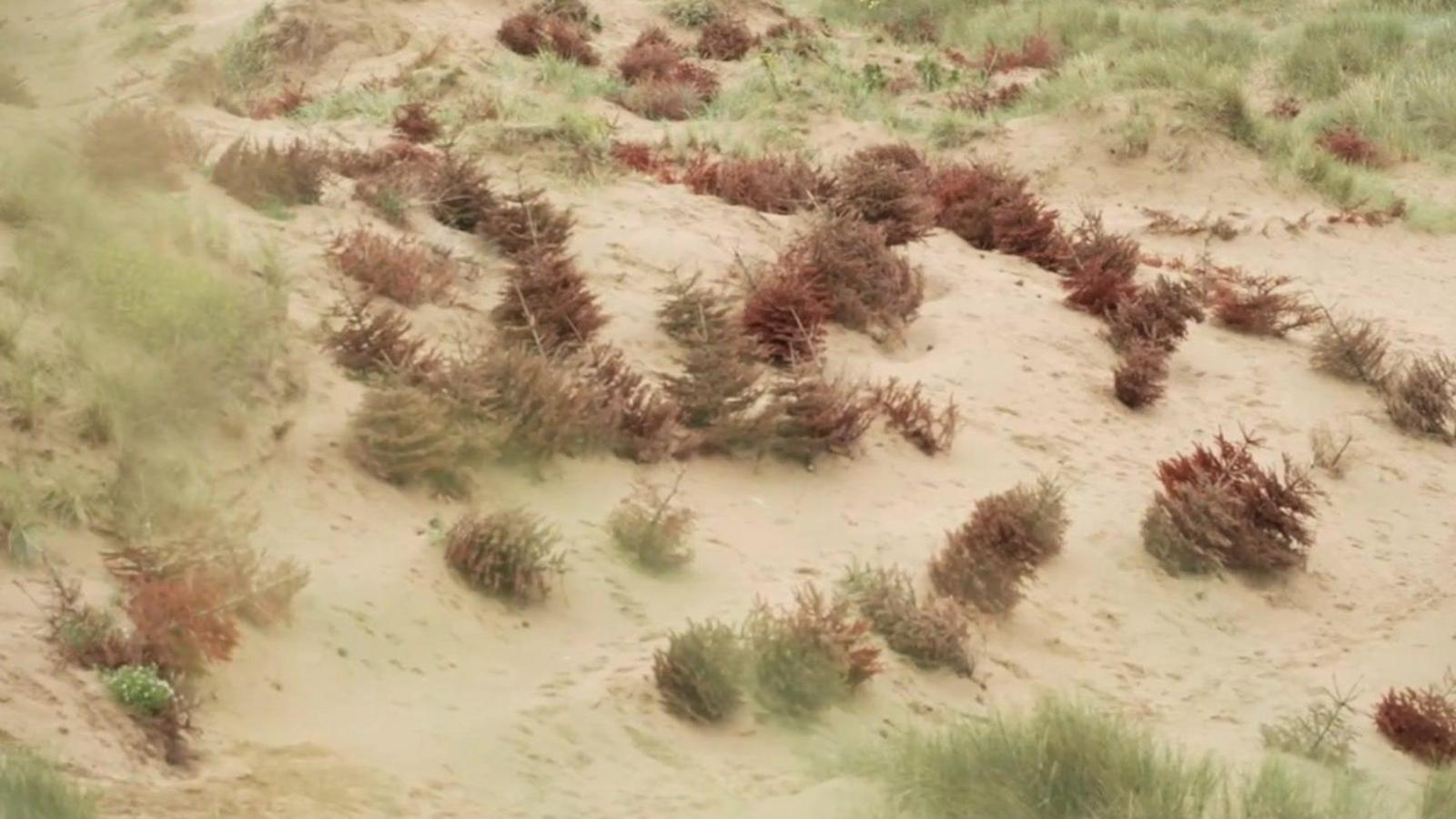Conservationists hail sand dunes project a success

The sands dunes have made way for housing and roads in the past 150 years
- Published
A project to restore sand dunes in Lancashire has been hailed a success by conservationists.
Over the last 150 years, more than 80% of the sand dunes in Lytham St Annes have been lost to make way for housing and roads.
The Fylde Sand Dunes Project has been boosted by using Christmas trees and planting marram grass to bring up to 328 ft (100m) of sand dunes back to the area, said Amy Pennington, of Lancashire Wildlife Trust.
She said sand dunes "play a huge role in coastal defences" and their loss leaves area vulnerable to flooding, so there had been a huge effort to widen them again to push high waters back.
Ms Pennington said: "They act as a wonderful form of sea defence... sand dunes and salt marsh act as a buffer between the land and the sea.
"This whole area has widened by up to 100 metres. Hopefully, we can go out another 10 to 20 metres."

Amy Pennington says sand dunes act as a "wonderful form of sea defence"
Marram grass, which helps to bind the sand together, has been planted as part of the project, which is funded by the Environment Agency until 2027.
Volunteers have also placed Christmas trees in the sand dunes since 2013 to make the dunes more secure.
"It works extremely well, so much so that it has acted as a case study for lots of other dune projects around the UK," said Ms Pennington.

The use of Christmas trees has worked "extremely well" in helping rebuilding the sand dunes
Andy Singleton-Mills, a ranger for Fylde Council, said: "We can carry on building the dunes, out towards the sea.
"Eventually, we will hit high tide and we will lose more dunes than we are making and that'll be the point where we stop."
Listen to the best of BBC Radio Lancashire on Sounds and follow BBC Lancashire on Facebook, external, X, external and Instagram, external. You can also send story ideas to northwest.newsonline@bbc.co.uk, external